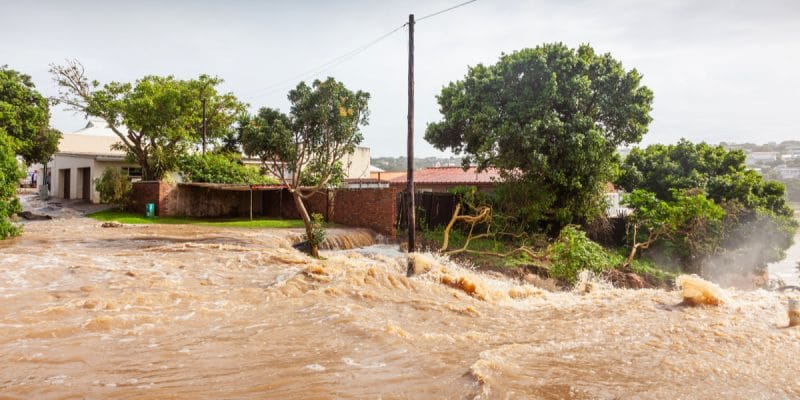In Cameroon, heavy rains in July and August cause devastating floods. The consequences are becoming more serious over the years, even leading to loss of life. This situation worries many observers who are calling for an effective climate-related natural disaster management plan.
On the night of Saturday August 21st, 2021, heavy rain fell on the town of Ngaoundéré in northern Cameroon, causing flooding and resulting in several material damages. The Far North region has not been left out, since the beginning of August 2021; floods have destroyed houses, farms and plantations in several departments of the region. The case of the city of Douala in the south of the country is quite symptomatic of the situation. With an estimated population of more than 3 million and a demographic growth rate of about 3.5% per year, the economic capital of Cameroon lies on the Wouri delta in an area of former swamps and mangroves that is extremely flat. Floods can be very devastating, even causing loss of life.
Read also-SENEGAL: Faced with floods, Dakar launches the Orsec plan and pledges €42 million
These floods, which are one of the strongest signs of climate change, are a cause for concern in Cameroon, because of their increase. In 2020 alone, nearly 160,000 people were affected by floods in the Far North of Cameroon, a region already heavily affected by the exactions of the Boko Haram sect and which, like the rest of the world, had to face the Covid 19 pandemic.
An effective climate disaster management plan
It is indeed during each rainy season that Cameroon is plunged under water. But the government’s actions so far do not seem to be bearing fruit. Greenpeace Africa calls on the government of Cameroon to take its responsibilities and reconsider its international commitments in terms of risk management and natural disasters, protection of people and the fight against climate change. “We note that, for cities like Douala and Yaoundé, the outflow of rivers is partly linked to the clogging of drains by plastic bottles. Where are we with the ban on the use of non-biodegradable plastic packaging decided in 2014? It is clear that its implementation was limited to the first few weeks of the signing of the decree,” notes Ranèce Jovial Ndjeudja, Forest Campaigner at Greenpeace Africa.
Boris Ngounou







